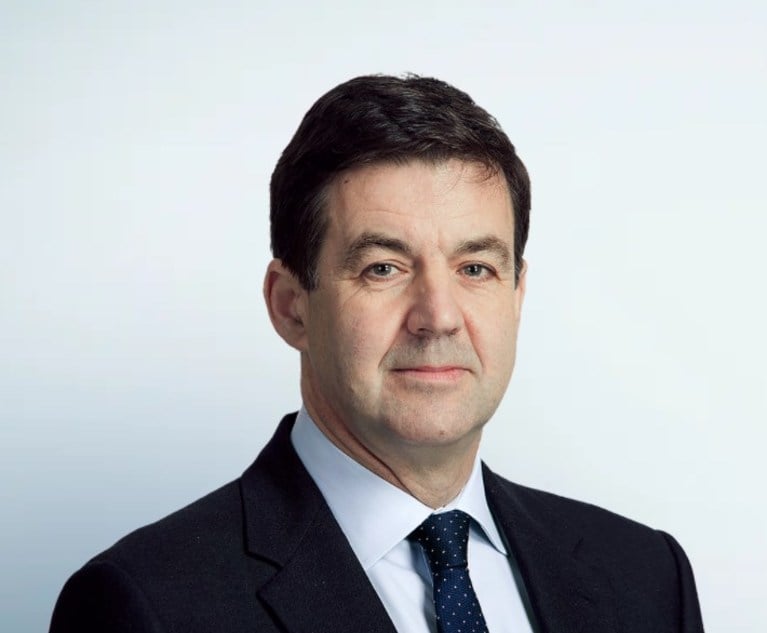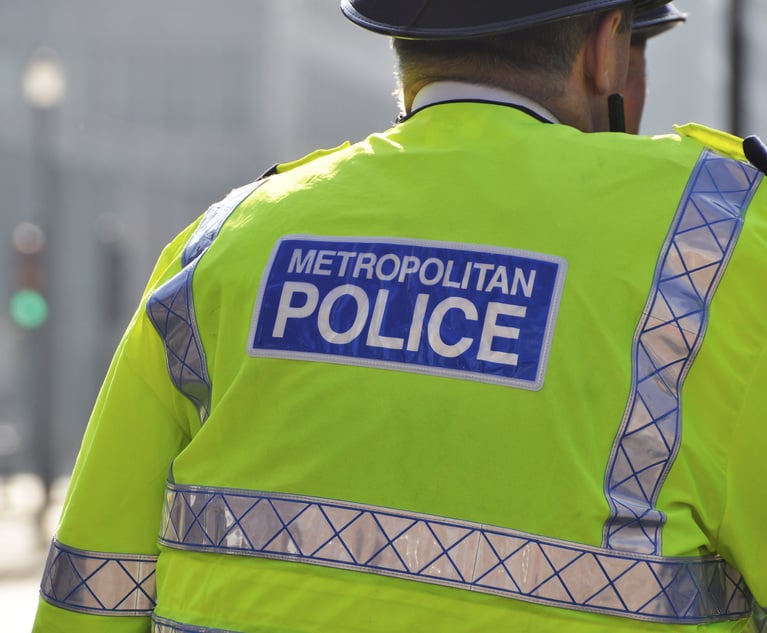 BEIJING, CHINA. Sept. 10, 2016: Huawei, a Chinese multinational company, is the largest telecommunications equipment maker in the world. (Image: Shutterstock)
BEIJING, CHINA. Sept. 10, 2016: Huawei, a Chinese multinational company, is the largest telecommunications equipment maker in the world. (Image: Shutterstock)Huawei Taps Jones Day, Morgan Lewis in Challenge to US Defense Law
In challenging a section of the 2019 National Defense Authorization Act, the Chinese telecom giant has turned to two firms with close ties to the Trump administration.
March 07, 2019 at 11:31 AM
5 minute read
The original version of this story was published on The American Lawyer
Chinese tech juggernaut Huawei has turned to two U.S. law firms with ties to the Trump administration – Jones Day and Morgan, Lewis & Bockius – in the federal lawsuit it filed late on Wednesday against the government and several Trump cabinet members.
The company named six cabinet secretaries and the General Services Administration as defendants in its 55-page complaint in federal court in Sherman, Texas. The suit challenges the constitutionality of a section of the 2018 law funding the U.S. Department of Defense for the current fiscal year, which precludes U.S. Government agencies from purchasing goods and services from Huawei.
Huawei is seeking a declaratory judgment that Section 889 of the 2019 National Defense Authorization Act deprives the company of its due process rights and runs astray of several other constitutional provisions.
"In short, Section 889 blacklists Huawei and bars it from significant sectors of the U.S. telecommunications market, all without giving Huawei a fair hearing at which it could be informed of and confront the allegations made against it," the complaint says.
According to the complaint, the language in question does not just bar federal agencies from purchasing Huawei equipment and services, but also forbids them from contracting with or awarding grants or loans to third parties that buy Huawei equipment or services. Section 889, which Huawei says brands it a tool of the Chinese Government and a risk to U.S. security, also names the company's smaller Chinese rival, ZTE Corp.
"Section 889 is based on numerous false, unproven and untested propositions," Huawei chief legal officer Song Liuping said in a statement. "Contrary to the statute's premise, Huawei is not owned, controlled, or influenced by the Chinese Government. Moreover, Huawei has an excellent security record and programme. No contrary evidence has been offered."
Huawei said the restrictions prevent the company from providing more advanced 5G technologies to U.S. consumers, a move that will delay the commercial application of the latest generation of cellular mobile communications. The company is also asserting that the rule barring it from the U.S. market will have a disproportionate impact on mobile users in rural regions, by ruling out a cost-effective strategy for upgrading networks.
"If this law is set aside, as it should be, Huawei can bring more advanced technologies to the United States and help it build the best 5G networks," Huawei chairman Guo Ping added in a release. "Huawei is willing to address the U.S. Government's security concerns. Lifting the NDAA ban will give the U.S. Government the flexibility it needs to work with Huawei and solve real security issues."
To fight this legal battle, the company has turned to two law firms that have been closely linked to the Trump administration.
At Jones Day, Huawei has turned to veteran U.S. Supreme Court advocate Glen Nager and his younger appellate partner Ryan Watson, a recent clerk for U.S. Supreme Court Justice Samuel Alito. The first two years of the Trump Administration saw a steady pipeline of Jones Day lawyers to the White House counsel's office, Department of Justice and other government agencies. At least a dozen former Jones Day lawyers who received government jobs during the Trump administration are still working in the federal government.
From Morgan Lewis, Huawei has enlisted Washington, D.C. partners Andrew Lipman and Russell Blau, two experts in telecommunications law. Their partner in the D.C. office, Sherri Dillon, has long served as President Trump's tax attorney and was recently asked by the U.S. House Committee on Oversight and Reform to appear for a "transcribed interview" related to congressional Democrats' probe into the president's conduct and finances.
The company has also retained Texas firm Siebman Forrest, Burg & Smith as local counsel.
A report from the U.K. technology news site Telecoms.com shows that Huawei far out-earns ZTE and its other rivals in the telecoms equipment space. It brought in $92,459 million in 2017, more than competitors Nokia, Ericsson and ZTE combined, and far more than ZTE's share of $17,419 million.
In spite of this difference, ZTE far outspent Huawei in U.S. lobbying, turning to Hogan Lovells, Kasowitz Benson Torres and two other lobbying firms to spend a total of $3.79 million in 2018. Huawei, meanwhile, only spent $165,000 during the same period.
A spokesman for the White House did not immediately respond to a request for comment.
|Read More
Embattled Huawei Calls for Trust and Transparency Through Common Cybersecurity Standards
This content has been archived. It is available through our partners, LexisNexis® and Bloomberg Law.
To view this content, please continue to their sites.
Not a Lexis Subscriber?
Subscribe Now
Not a Bloomberg Law Subscriber?
Subscribe Now
NOT FOR REPRINT
© 2025 ALM Global, LLC, All Rights Reserved. Request academic re-use from www.copyright.com. All other uses, submit a request to [email protected]. For more information visit Asset & Logo Licensing.
You Might Like
View All
Freshfields' Former Senior Partner Braham Knighted in New Year’s Honours
3 minute read
Trio Of Firms Bag Roles In JSW Energy’s $1.5B Acquisition In India

Brazilian Firms Demarest, BMA, TozziniFreire Elevate Lawyers to Partner
Trending Stories
- 1'True Leadership Is About Putting Others First': 2024 In-House Award Winners Inspired, Took Road Less Traveled
- 2A Q&A with Sidley Austin's London Leader
- 3New York-Based Harris Beach Combines With Connecticut-Based Murtha Cullina, Forming NE Powerhouse
- 4New Year, New Am Law 100: Challenges Await These Newly Merged Law Firms
- 5Thursday Newspaper
Who Got The Work
Michael G. Bongiorno, Andrew Scott Dulberg and Elizabeth E. Driscoll from Wilmer Cutler Pickering Hale and Dorr have stepped in to represent Symbotic Inc., an A.I.-enabled technology platform that focuses on increasing supply chain efficiency, and other defendants in a pending shareholder derivative lawsuit. The case, filed Oct. 2 in Massachusetts District Court by the Brown Law Firm on behalf of Stephen Austen, accuses certain officers and directors of misleading investors in regard to Symbotic's potential for margin growth by failing to disclose that the company was not equipped to timely deploy its systems or manage expenses through project delays. The case, assigned to U.S. District Judge Nathaniel M. Gorton, is 1:24-cv-12522, Austen v. Cohen et al.
Who Got The Work
Edmund Polubinski and Marie Killmond of Davis Polk & Wardwell have entered appearances for data platform software development company MongoDB and other defendants in a pending shareholder derivative lawsuit. The action, filed Oct. 7 in New York Southern District Court by the Brown Law Firm, accuses the company's directors and/or officers of falsely expressing confidence in the company’s restructuring of its sales incentive plan and downplaying the severity of decreases in its upfront commitments. The case is 1:24-cv-07594, Roy v. Ittycheria et al.
Who Got The Work
Amy O. Bruchs and Kurt F. Ellison of Michael Best & Friedrich have entered appearances for Epic Systems Corp. in a pending employment discrimination lawsuit. The suit was filed Sept. 7 in Wisconsin Western District Court by Levine Eisberner LLC and Siri & Glimstad on behalf of a project manager who claims that he was wrongfully terminated after applying for a religious exemption to the defendant's COVID-19 vaccine mandate. The case, assigned to U.S. Magistrate Judge Anita Marie Boor, is 3:24-cv-00630, Secker, Nathan v. Epic Systems Corporation.
Who Got The Work
David X. Sullivan, Thomas J. Finn and Gregory A. Hall from McCarter & English have entered appearances for Sunrun Installation Services in a pending civil rights lawsuit. The complaint was filed Sept. 4 in Connecticut District Court by attorney Robert M. Berke on behalf of former employee George Edward Steins, who was arrested and charged with employing an unregistered home improvement salesperson. The complaint alleges that had Sunrun informed the Connecticut Department of Consumer Protection that the plaintiff's employment had ended in 2017 and that he no longer held Sunrun's home improvement contractor license, he would not have been hit with charges, which were dismissed in May 2024. The case, assigned to U.S. District Judge Jeffrey A. Meyer, is 3:24-cv-01423, Steins v. Sunrun, Inc. et al.
Who Got The Work
Greenberg Traurig shareholder Joshua L. Raskin has entered an appearance for boohoo.com UK Ltd. in a pending patent infringement lawsuit. The suit, filed Sept. 3 in Texas Eastern District Court by Rozier Hardt McDonough on behalf of Alto Dynamics, asserts five patents related to an online shopping platform. The case, assigned to U.S. District Judge Rodney Gilstrap, is 2:24-cv-00719, Alto Dynamics, LLC v. boohoo.com UK Limited.
Featured Firms
Law Offices of Gary Martin Hays & Associates, P.C.
(470) 294-1674
Law Offices of Mark E. Salomone
(857) 444-6468
Smith & Hassler
(713) 739-1250







